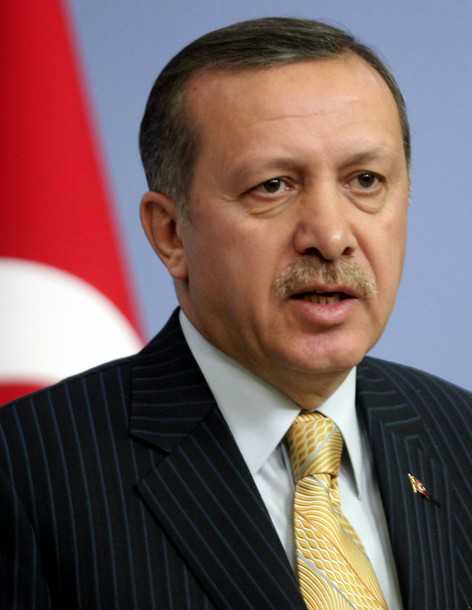 By M.A. Saki
By M.A. Saki
Turkish Prime Minister Recep Tayyip Erdogan’s Justice and Development Party (AKP) won another landslide victory in the general election on June 12.
The face of Turkey has changed since the AKP assumed power in 2002. It has emerged as an economic power and has transformed itself from a follower of the West into a key regional and international player.
The Turkish people open their arms to the AKP because it has created a dynamic economy, adopted policies in conformity with the socio-religious structure of the Turkish society, aligned itself with the Islamic world, and openly criticized Israel’s policy in the occupied territories of Palestine.
Turkey has witnessed sustainable economic growth over the last nine years, to the extent that the AKP has succeeded in bringing Turkey into the ranks of the twenty wealthiest countries in the world. And Goldman Sachs has predicted Turkey will break into the top ten by 2050, if things stay on the track.
To join the European Union, Turkey, under the AKP leadership, has also carried out many reforms to bring its laws into line with European standards. But the new generation of leaders in European countries, such as Germany and France, has blocked Turkey’s efforts to join the EU.
However, although Europe is facing a debt meltdown and many of the countries in Eastern Europe have faced financial crises, Turkey has managed to rebound quickly from the global downturn and its economy grew 8.9 percent last year, the fastest rate of any large country except for China and India.
Turkey’s rise as an economic powerhouse has created high self-confidence among its citizens, to the extent that they no longer see joining the European Union as a paradise. For example, Barin Kayaoglu, a Turkish citizen who is currently a Ph.D. student at the University of Virginia, shrugged off the recent remarks by French President Nicolas Sarkozy, who had said Turkey will not join the European Union for at least 15 years. Kayaoglu says Turkey will be politically and economically more successful than France in 15 years.
Erdogan also knows how to find a place in the hearts of people at home and abroad, and particularly in the hearts of Muslim nations. Well aware of the religious sentiments of the Turkish people, the AKP has been seeking to loosen the ban on hijab, which is seen as a sign of the expansion of civil liberties.
The Turkish prime minister visited the quake-hit areas of Pakistan in October 2005 and the flood-hit areas of the South Asian country in October 2010. During those trips, he expressed sympathy with the people of Pakistan and also pledged that Turkey would provide economic support and relief.
Despite being a Sunni Muslim, Erdogan visited the shrine of Imam Ali (AS) — the first Shia Imam — in Najaf in March and met with Grand Ayatollah Ali Sistani, the highest-ranking Shia cleric in Iraq.
Erdogan also enchanted the hearts and minds of the Arab people when he stormed off the stage at the World Economic Forum in Davos in January 2009 after a heated argument with Israeli President Shimon Peres about Israel’s war on the people of Gaza.
Speaking at the victory rally in Ankara after his recent election triumph, Erdogan said, “Today the Western world, Tripoli, Gaza have won. The Middle East, the Balkans, Europe have won. Peace, justice and stability have won.”
Turkey has also tried to play the role of a regional leader. For example, Turkey, together with Brazil, tried to broker a nuclear deal between Iran and the West in May 2010. It has also hosted meetings between Pakistani and Afghan leaders in its efforts to help end the insurgency in Afghanistan.
As a key member of NATO, Turkey is also challenging the West. For example, a joint aerial exercise conducted by the Turkish and Chinese militaries in central Anatolia shocked the West since such maneuvers were previously carried out jointly with the U.S., other NATO countries, and Israel.
Their success at home and abroad has prompted some analysts to surmise that the current rulers of Turkey have the ambition of reviving the glory days of the Ottoman Empire. But this Neo-Ottomanism would not have the imperialistic nature of the Ottoman Empire and would promote cooperation among nations.
via tehran times : Erdogan, a success at home and abroad.